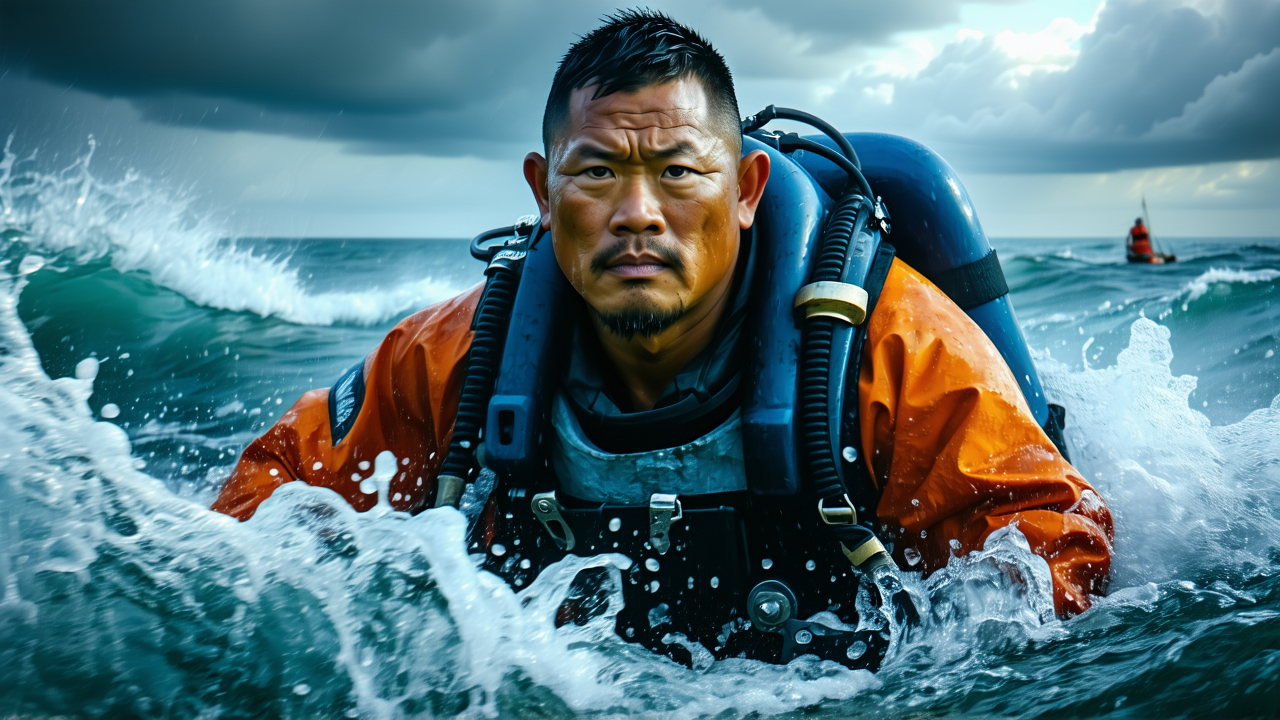Former Navy Diver Rob Hewitt Reflects on 75-Hour Ordeal at Sea and His Message for Water Safety
Former Navy Diver Rob Hewitt Reflects on 75-Hour Ordeal at Sea and His Message for Water Safety
It has been nearly 20 years since former New Zealand Navy diver Rob Hewitt found himself adrift in the ocean for 75 hours, a harrowing experience that nearly cost him his life. Now, on World Drowning Prevention Day, Hewitt is using his story to urge others to prioritize safety when entering the water, hoping to prevent future tragedies.
Rob Hewitt, a member of the Ngāti Kahungunu and Te Rangikoianaki iwi, was once a confident and experienced diver with two decades of service in the navy. He had recovered bodies, cleaned ships, and spent countless hours in the ocean. Yet, it was this very confidence — and a decision to show off — that led to his near-fatal ordeal in 2006.
"It was arrogance and crossing that line of tikanga," Hewitt said, recalling the moment he broke the cardinal rule of his grandfather: "You only take enough for a feed." That day, he had gone diving with friends from Manawatū, kitted in full navy gear, including a tether rope used to tie dive partners together. But the skipper of the boat had warned him, "We don’t do that sort of stuff here."
Despite the warning, Hewitt decided to ignore the protocol, believing that "when in Rome, do what the Romans do." He went down alone, breaking the tether and the rule of his grandfather, and the consequences were immediate.
What followed was a 75-hour struggle in the ocean, during which Hewitt feared being judged and even contemplated his own mortality. "I thought my life was only worth 48 minutes of searching," he said, recalling the moment he realized the rescue helicopter was heading back to the airport. "I’m 38 years old, had spent 20 years in the navy, and that’s what I was worth."
But as the hours passed, Hewitt found strength in his Māoritanga, reciting karakia, his whakapapa, and connecting with his identity as a New Zealander. He survived by eating the four kina he had collected, later consuming a crayfish over the course of three hours, all the while fearing it might be his final meal.
"I did what anyone would do. I prayed for all my sins to be forgiven because sometime during the night I think I’m going to die," he said, describing the fear that gripped him during the third night of his ordeal.
On the morning of February 8, 2006, after 75 hours at sea, Hewitt was finally rescued by a Zodiac and two navy divers. "I thought they were a hallucination," he said, before adding, "I said, 'Waiting for you fellas.'"
Since then, Hewitt has dedicated himself to water safety, writing two books and working with a German film crew on a documentary. He has become a passionate advocate for preventing drowning incidents, particularly in New Zealand, where 21 people die annually while gathering kai, with many of the victims being male, adult, and of Māori, Pasifika, or Asian descent.
"I have had a battle with Tangaroa (Māori God of the sea) and survival is never far from my thoughts," Hewitt said. "I want to make sure that no one else has to go through what I did."
Water Safety New Zealand notes that while the number of drowning fatalities in the country has decreased to 74 in 2024 — the lowest since 2018 — many of these tragedies are preventable. Common factors include not wearing life jackets, entering the water alone, and underestimating the conditions.
Hewitt’s story is a powerful reminder of the dangers of the ocean and the importance of respecting its power. His journey from near-death to becoming a water safety advocate is a testament to resilience, cultural identity, and the enduring strength of the human spirit.
As he continues to teach young Kiwis about water safety, Hewitt hopes his experience will serve as a lesson for others. "I want to make sure that no one else has to go through what I did," he said.
